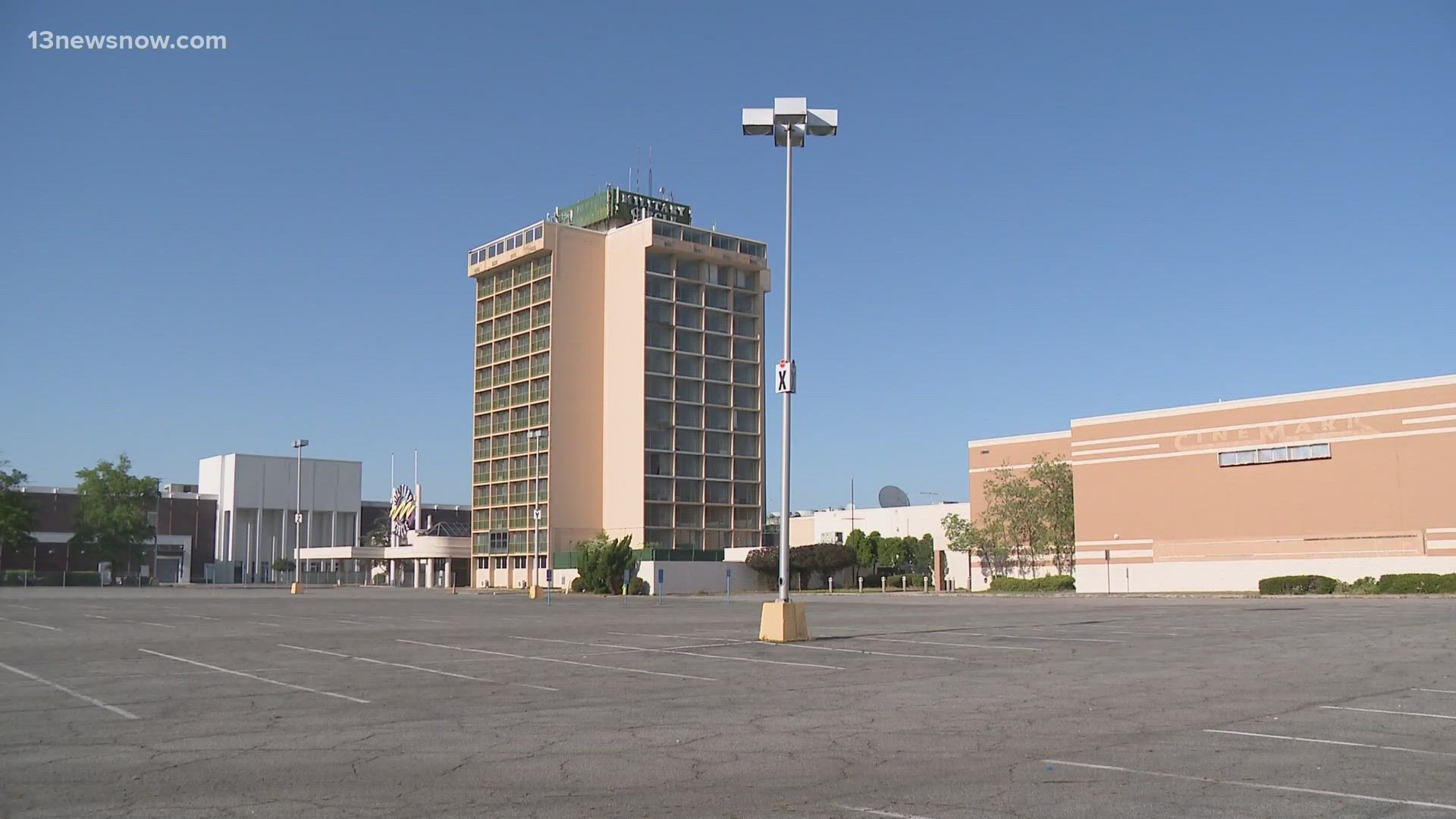CHESAPEAKE, Va. — There are plenty of parking lots across Hampton Roads.
But because of the slow and ongoing death of brick-and-mortar retail, many lots in the region are left empty and bare.
According to the Parking Reform Network, nearly 40% of the resort area in Virginia Beach and nearly 25% of downtown Norfolk are parking lots. These vast, often empty, spaces are more than just eye sores: they’re bad for the environment and resiliency.
The Hampton Roads Planning District Commission is studying 33 parking lots across the area. Leaders point to an ongoing problem: many parking lots are paved with asphalt. Instead of absorbing water when it rains, the runoff flows to stormwater drains. As rainwater flows over pavement, it picks up pollutants, such as fertilizer, oil, gasoline, and litter which can clog storm drains.
The HRPDC is setting an example for future lot construction by retrofitting the parking lot at its headquarters in Chesapeake. Instead of the asphalt there now, the new lot will have pervious concrete or permeable pavers that absorb water.
It will also have a bio-retention basin in the center of the lot filled with native plants to filter water runoff.
Getting rid of asphalt comes with a built-in bonus, too. Other types of pavements can absorb not just water, but sunlight, keeping the ground cooler on hotter days.
When completed, the new design should serve as a model for resilient lot construction in the ongoing fight against sea level rise.
Leaders say it is the first "Stormcrete" project in Hampton Roads.

